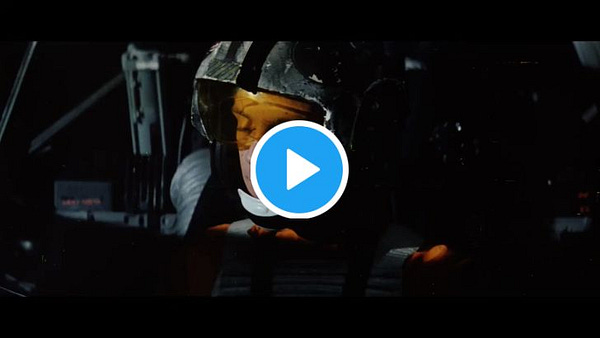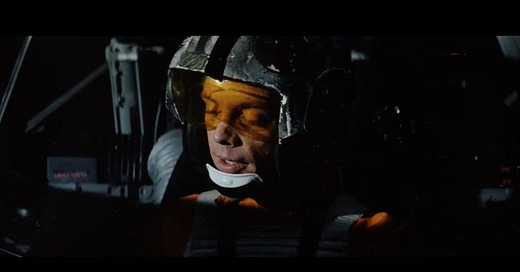Things are ramping up quick. What started as a slow return to normalcy has now been picking up speed — and rapidly. Downtown theater is happening again — albeit in stripped-down, outdoors form.
As the weather warms, the hot and sticky summer nights in New York feel more and more familiar. Ah: here is everyone out, we're assuming vaccinated, rumbling through a city that oozes out its pores. What it oozes depends on your point of view, but that's for another time. The summer air and sense of hopefulness honestly feels wonderful, and I hope that feeling sticks around.
I don't know what's going to happen to remote theater after this is all said and done. Best case scenario we continue to get boundary-pushing work like what Fake Friends does, and push to have more filmed/streaming versions of live shows — for accessibility reasons, if nothing else. We're still getting a lot of digital theater that feels like bad film, which comes from a lack of imagination. Those efforts, as they come further and further into the pandemic, closer and closer to re-opening live theater, feel like aberrations that we'll forget about when live theater is a thing again — which is going to happen sooner rather than later.
Speaking of Fake Friends, their new show This American Wife is live streaming each night through May 29.
More digital theater I'm checking out this week:
My friend Calista Small's The Wandering, which has a very interesting "immersive" ticket.
Digitization, texture, blandness
I've written before about seeking out digital texture, which is something that most of our digital interfaces sorely lack. Texture is generally thought of as a byproduct of the analog world — and indeed the digital space flattens things, both literally and figuratively — but it can be seen in several places in digitization: in the difference between old-school blogs and social media posts, or hell, in analog-digital transpositions:


Texture takes many forms. But much of modern social media erases texture, and embraces an air-brushed aesthetic. Indeed, algorithms often lead to the blandest people becoming popular. That's the case with TikTok, as Rebecca Jennings writes, where the most popular folks on TikTok are conventionally pretty people who operate in "the muddled median of everyone on earth’s most average tastes". This blandness — a generic ambiance that bends towards nothingness — is pervasive, and is starting to impact many other areas of culture: movies, TV, music. I'm fascinated —and scared — to see how TikTok continues to shape cultural trends going forward.
Speaking of getting popular: 18-year-old Olivia Rodrigo has had a truly remarkable rise this year. A "minor" celebrity who was in High School Musical: The Musical: The Series (what?) at the beginning of January, she blew up with her power-ballad-with-a-sensational-bridge single "drivers license", aided by the internet and the swift virality of TikTok. It broke streaming records and apparently Billboard Hot 100 records, though I don't really know/care how that works.
Anyway, her debut album SOUR came out this week. And it's good — I recommend it! It reminds me of being in high school and, well, apparently that's a common sentiment for millennials, who are ever-jealous of Gen Z.
Still, her music certainly takes from a lot of influences, like Taylor Swift, Phoebe Bridgers, Lorde, a little bit of old Hannah Montana. It can't help but feel a bit "averaged" out from other music. At least, however, Rodrigo's music has some sense of personality and emotion — her popularity (most of it) has come from her music first, not the other way around, which is always a good first step.
Further reading:
Kat Tenbarge on mediocrity and possibility in the TikTok music industrial complex.
TikToker Kahlik Greene's series: "How Everything on this app originated with Black Ppl"
Anna Wiener on "renderporn" — computer-generated interiors on Instagram
Dear Evan Hansen, oh no
For some reason they're making a Dear Evan Hansen movie. Its trailer, which runs over 3 minutes and covers essentially the entire plot of the musical, became the talk of Twitter. Ben Platt obviously looks too old for the part/is given a not-good wig, but more than that it just looks... so bad? I don't know, I'm really not a fan of this musical to begin with, it checks a lot of bad boxes for me, so I'm not the person to ask. I like Jose Solis' take: this is a show about white psychopaths.

Ahhhh, theater.
20 Years of Cinematic Classics Mulholland Dr. and Shrek
It's been 20 years since David Lynch's Mulholland Dr. (to many, his opus — to me, that was true until The Return) came out. Suzanne Enzerink wrote a great piece in the LA Review of Books on The Malleability of “Mulholland Drive” at 20. She rightly tries to look at it through a political lens — and through the ways in which Lynch's work lends to misinterpretations from white bros. His work aims to cast the gaze upon whiteness itself — but this can be a slippery task, and he doesn't always hit the mark. Still, so much holds up hauntingly well, and there's still that magnetic ambiguity...
Oh yeah, it's also been 20 years since Shrek came out, and for some reason there was a lot of Shrek-related material on the internet this week. My favorite is Scott Tobias's killjoy piece in The Guardian — Shrek at 20: an unfunny and overrated low for blockbuster animation. And I guess we should consider the power of Shrek memes, which can have the sinister undertones of Pepe the Frog. If that sentence doesn't make sense to you, then congratulations for not spending too much time on the internet.
🔗 Tidbits from the Week
Seemingly overnight, many platforms have added various implementations of "tipping" creators. Here's how the platforms compare with the cut they take:


Nothing like Shakespeare's Globe tweeting about anti-racism to get the racist Shakespeare-head reply guys out of the wood work (most of whom probably have not read Shakespeare, lol)


Noor Theater had a great statement on Palestine, with plenty of resources to follow up on. Did any other New York theaters do anything like this? Certainly not The Public, which to my knowledge has shut down at least two plays about Palestine in the last five years (Returning to Haifa and The Siege).
J. Crew is trying to go streetwear, which is basically the new prepwear
end note
Season 2 of The Curtain will be wrapping up at the end of May. I’ll take a few weeks off and then be back for Season 3.
The Curtain is supported by paying subscribers. I currently run on a patronage model: the benefits are the same (right now) for paying and free subscribers. Your support helps make this sustainable.
New reader? The Curtain is a weekly digital letter sent by Gus Cuddy. You can subscribe for free here, or browse the archives here.
You can reply directly to this email and I’ll receive it. So feel free to do that about anything. I love to hear back from people.
Talk soon,
Gus




